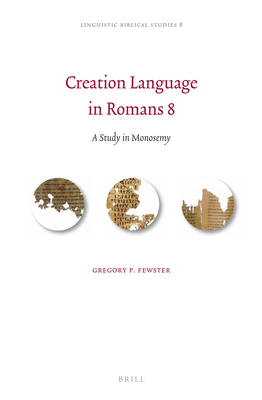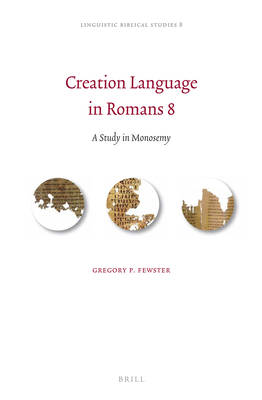
- Afhalen na 1 uur in een winkel met voorraad
- Gratis thuislevering in België vanaf € 30
- Ruim aanbod met 7 miljoen producten
- Afhalen na 1 uur in een winkel met voorraad
- Gratis thuislevering in België vanaf € 30
- Ruim aanbod met 7 miljoen producten
Zoeken
Omschrijving
Modern scholarship tends to understand Paul's use of creation language (κτίσις) in Rom 8.18-23 as part of a commentary on the state of sub-human creation. This misguided position warrants an inquiry into the state of lexical study in New Testament scholarship. As a result, Fewster articulates a theory of lexical monosemy, cast in the framework of Systemic Functional Linguistics. The model is applied to Paul's use of κτίσις through a robust corpus analysis and investigation into the word's role within the paragraph. κτίσις contributes to the cohesive structure of Rom 8.18-23 and--contra the majority of interpreters--functions as a metaphor for the human body.
Specificaties
Betrokkenen
- Auteur(s):
- Uitgeverij:
Inhoud
- Aantal bladzijden:
- 218
- Taal:
- Engels
- Reeks:
- Reeksnummer:
- nr. 8
Eigenschappen
- Productcode (EAN):
- 9789004246485
- Verschijningsdatum:
- 4/04/2013
- Uitvoering:
- Hardcover
- Formaat:
- Genaaid
- Afmetingen:
- 160 mm x 239 mm
- Gewicht:
- 476 g

Alleen bij Standaard Boekhandel
+ 436 punten op je klantenkaart van Standaard Boekhandel
Beoordelingen
We publiceren alleen reviews die voldoen aan de voorwaarden voor reviews. Bekijk onze voorwaarden voor reviews.








